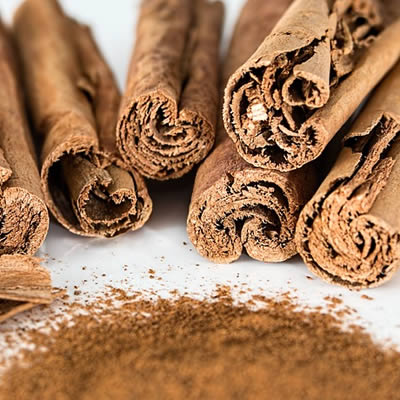Cinnamon
Cinnamon is a delicious and healthy spice, it has been used medicinally around the world for thousands of years. It can lower blood sugar levels and is cancer-protective. It also helps with lymphedema (fluid retention).
- The Ceylon variety of cinnamon does not contain high levels of coumarin (a natural blood thinner).
- The Cassia variety does contain coumarin. This is a fantastic natural blood-thinner
Studies have found that cinnamon can mimic the effects of insulin, a hormone that helps remove sugar from the blood.
Cinnamon health benefits can be obtained in the form of its pure bark, essential oils, in ground spice form (which is bark powder) or in extract form when its phenolic compounds, flavonoids and antioxidants have been isolated. It's also especially high in Manganese.
Cassia advantages and dangers
Cassia cinnamon contains high levels of coumarins, which can be toxic in VERY high doses (causing liver damage in rare cases). Coumarins are used as a defence by many plants, by inhibiting vitamin K synthesis - coumarins therefore act as an anticoagulant and prevent blood clotting (Warfarin, the most commonly used blood-thinning drug, is derived from coumarin). People who take blood-thinning drugs should not take cassia. But for most people, reducing blood clotting is a very positive thing and can reduce the risk of heart attacks and strokes.
In a study, results from 60 ground cinnamon samples (twelve brands) confirmed a high content of coumarin, with mean levels ranging from 2650 to 7017 mg per kilo. A teaspoon of cinnamon weighs around 3g, so a typical coumarin content would be 8mg-21mg, which is around the daily tolerable limit (some studies have linked coumarin to liver damage - but certainly people with known liver issues, or ones taking paracetamol, should be more cautious).

